BAMAKO, Aug. 11 -- The second round vote of Mali's presidential election ended at 18:00 local time on Sunday with positive evaluation in general though technical faults are noted by observers and small incidents are reported in Bamako, the capital city of Mali.
After small affluence at the beginning hours due to heavy rain in the morning, more voters in Bamako showed up at polling stations after sky cleared starting from the mid-day.
Voters came to choose a new president between former prime minister Ibrahim Boubacar Keita, widely known as IBK, and former finance minister Soumaila Cisse, who battled for the election crucial for the war-torn west African country in want of a fresh start.
Though there are some faults, the regularity and the sincerity of the vote is not to be contested, said Louis Michel, head of the European Union's electoral observation mission in Mali.
"The one who will be elected will be elected with legitimacy, this is my conviction," said Louis Michel, hailing "substantial democratic progress" in this western African country suffering a political and military crisis since 2012.
The poll has been overseen by some 2100 observers deployed by Mali's Pole of Electoral Observation which groups 60 civil society associations, in addition to 50 AU observers, above 100 from the EU, 150 from the Economic Community of Western African States (ECOWAS) and delegations from other international organisations.
A large majority of the observers stayed in 5 of the 8 administrative regions in the south and in the center of the country and in the district of Bamako.
Judged by Edem Kodjo, former prime minister of Togo and head of the African Union observers, Sunday's poll proceeded without major incidents though several technical faults are noted.
"The vote goes on rather well," commented Kodjo in an interview with Xinhua five hours after polling stations opened their doors.
Noting some technical faults, such as "all the seals are not tightened as they should be", the AU chief observer rejected using these to question the results of the election.
"Because each time we noted a problem, we pointed it out immediately and thus had it corrected. After all, there is nothing dramatic in this," he told Xinhua.
Observation is also positive about the voting in the fragile north, where attempts of intimidation by radical separatist were reported during the first round on July 28, especially in Kidal, 1500 km from Bamako.
Ibrahima Sangho, spokesman of Mali's Pole of Electoral Observation, told Xinhua that "in Kidal, all goes on well. People vote normally, the same in Gao and Timbuktu".
According to a communique issued by this organisation, "89.9% of the polling stations have been opened on time. Compared to that of the first round (96%), the lower rate of the second round could be explained by the heavy rain notably experienced in the regions of Bamako, Kouliko and Kayes."
"At the opening moment, 90.7% of the stations' personnel were present. The essential of documents and materials were in place, which allowed an effective kick-off of the operations," said the spokeswoman.
In Timbuktu, an ancient city in the north of Mali once seized by al Qaida-linked rebels who were driven out later by French and Malian troops, the regional governor Mamadou Mangara announced that he is satisfied with the good conduct of the operations of vote.
At the polling station of Fundamental school of Mamadou Gondo, in the area of Badalabougou in Bamako, where Soumaila Cisse voted at around 9: 15, an incident occurred in mid-day when militants supporting Cisse questioned the management of the vote. "The president and assessors (of the bureau) act against the delegate of Soumaila Cisse, rejecting the later's request to verify the identity of voters," said Hamidou Traore, representative of the Alliance for Democracy in Mali (ADEMA), an ally party of Cisse's Union for the Republic and Democracy (URD). The young militant told Xinhua that rumor said 1.9 million fraudulent polling cards have been made in favor of IBK, that's why the delegate of Cisse felt obligatory to check the photo in the cards to verify that it is the same face of the holder of the card. With agitation created by this incident, President of the Commission of the Economic Community of Western African States (ECOWAS) Kadre Desire Ouedraogo, had been called on for an arbitrage by the angry Protestants.
ECOWAS has deployed 150 observers headed by former president of Ghana, John Kufuor, to oversee this election.
IBK, the 68-year-old leading candidate, cast his vote at about 10: 40 at the center of Sebeninkoro Ecole AB, in the 4th commune of Bamako, where a deployment of security measures is visible outside as well as inside.
Shortly after the voting, IBK told press at his residence that, if he is elected, he will form a government which will "make sure that our whole country gets back onto the base of unity".
IBK has garnered 39.97 percent of the votes in the first round held on July 28, largely ahead of his rival Soumaila Cisse, who got 19.70 percent. He had this favorable position consolidated following the announcement of results of the first round, as 20 of the 25 eliminated candidates of the first round chose to support his candidature in the second round.
For the outgoing president of transition, the conduct of Sunday's is "satisfying". "The voters have voted freely, in mass," said Traore when answering a question by Xinhua.
"I think we can say that the transition has been a success. Now we will enter a new phase, the phase of reconstruction of the Malian State and the unification of the Malien people," he said.
 |

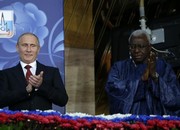 IAAF president, Putin attend opening ceremony for Moscow 2013
IAAF president, Putin attend opening ceremony for Moscow 2013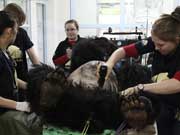 Chengdu stores ban bear bile
Chengdu stores ban bear bile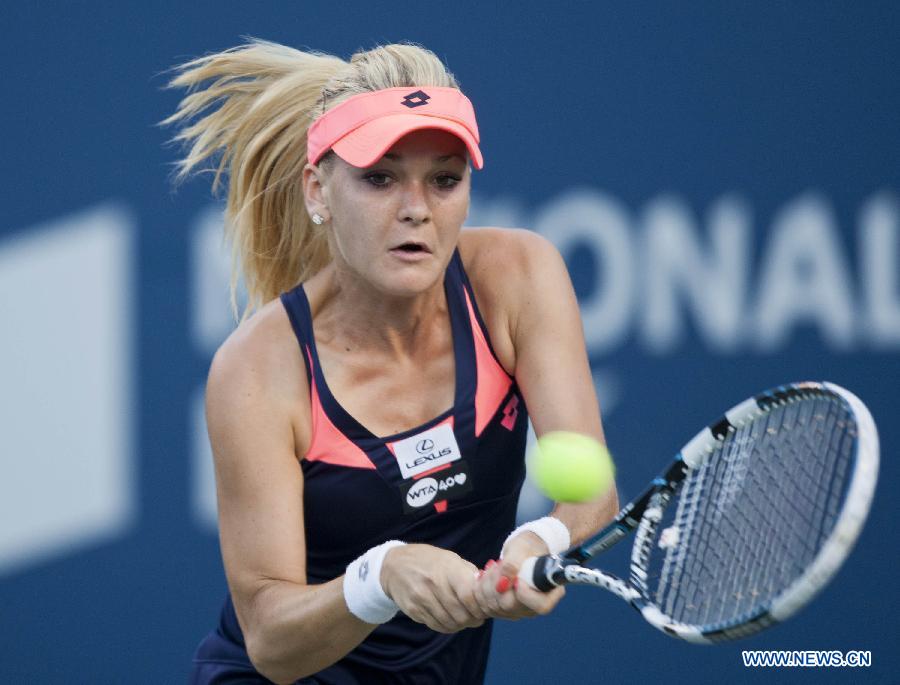 Serena Williams beats Poland's Rybarikova 2-0 at 2013 Rogers Cup
Serena Williams beats Poland's Rybarikova 2-0 at 2013 Rogers Cup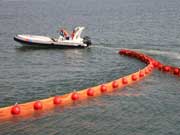 Exercise dealing with oil spill held in Bohai Sea
Exercise dealing with oil spill held in Bohai Sea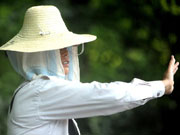 Continuous heat waves linger in E China
Continuous heat waves linger in E China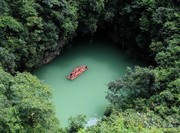 Geopark in Guangxi sees tourism peak
Geopark in Guangxi sees tourism peak Best photos of week (Aug. 3- Aug. 9)
Best photos of week (Aug. 3- Aug. 9) People celebrate National Fitness Day on Qingdao beach
People celebrate National Fitness Day on Qingdao beach  Top 10 most beautiful lighthouse around the world
Top 10 most beautiful lighthouse around the world Q&A: How dangerous is botulism?
Q&A: How dangerous is botulism? China has a new 'tallest building'
China has a new 'tallest building' The richest Chinese families in 2013
The richest Chinese families in 2013 
Day|Week|Month